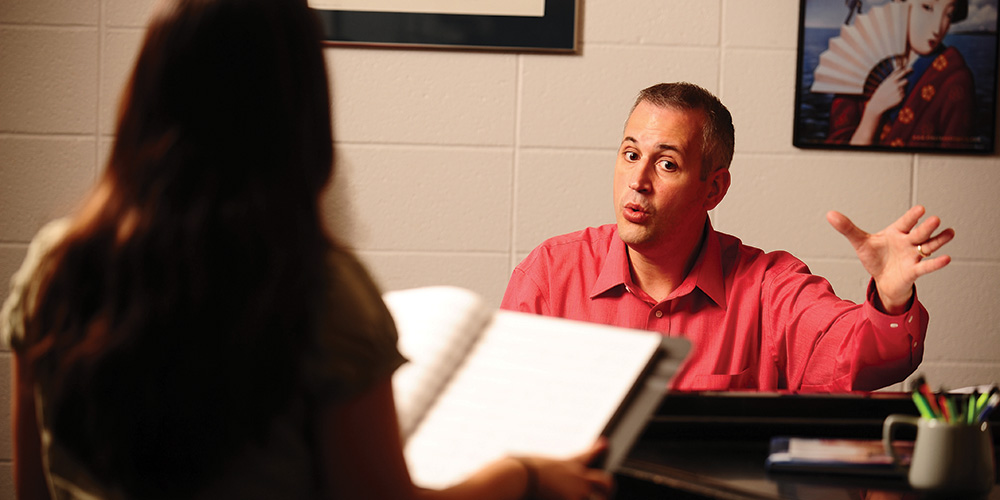In order to best instruct voice students on improving their instrument, Hesston College music faculty member and voice instructor Matt Schloneger believes it is important to understand vocal health. Through his doctoral work in vocal pedagogy at the University of Kansas (Lawrence), Schloneger is studying and analyzing singers’ daily voice use for his dissertation.
Schloneger’s research on the scientific aspects of the voice earned him a poster presentation spot at the National Association of Teachers of Singing National Conference in Boston July 5 to 9, where he won Best Poster Paper Presentation.
Schloneger’s presentation, which he co-authored with Dr. Eric Hunter from the Department of Communicative Sciences and Disorders at Michigan State University (East Lansing) and the National Center for Voice and Speech, was titled “Testing a New Method in Voice Dosimetry Utilizing an Unfiltered Accelerometer Signal: Protocols and Preliminary Data,” was chosen for the top award among about 40 presentations.
“What we don’t understand about the voice is how much use is too much and what is the best amount of vocal exercise to improve the voice,” said Schloneger.
Schloneger’s research is designed to get a clearer picture of best practice for vocal exercise and health. In his earlier research, Schloneger used a high-dollar monitor to measure vocal cord vibrations in the field. Dr. Hunter created a new, budget friendly method with a standard digital voice recorder, and Schloneger is one of the first to conduct research with it. The new technology will eventually allow any voice teacher to monitor students’ vocal usage to instruct them on healthy vocal exercise.
“Singers use only one instrument for singing and speaking so it’s important to think about the voice’s overall use and make students aware of how they use their voice and its health,” said Schloneger.


